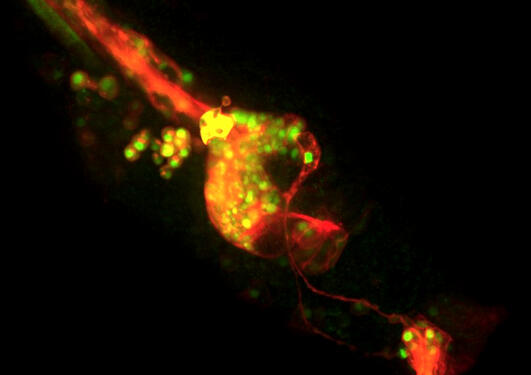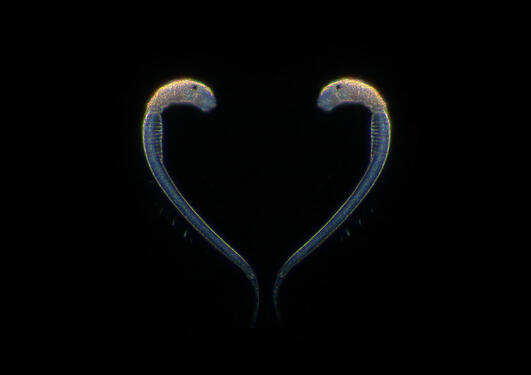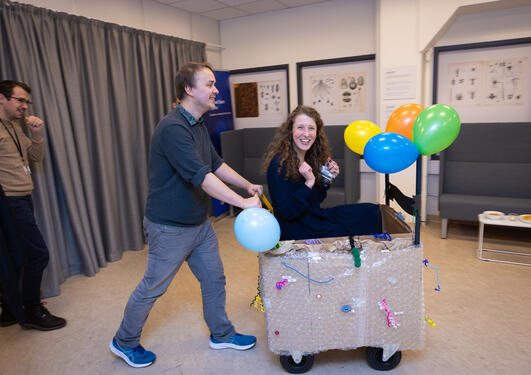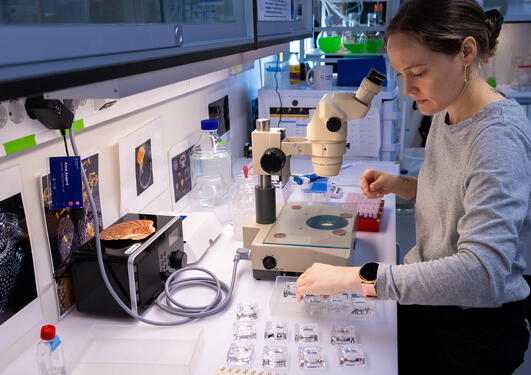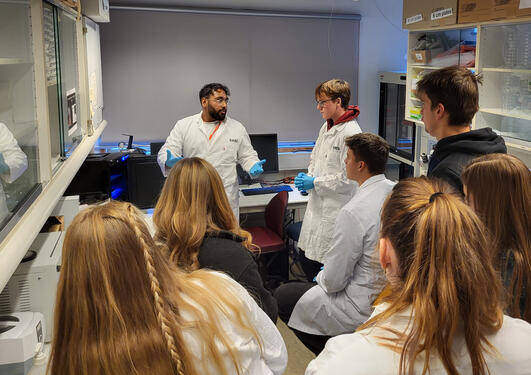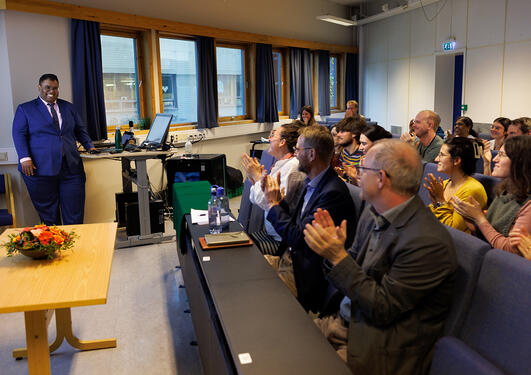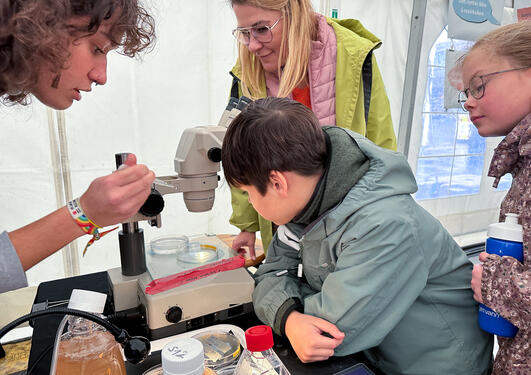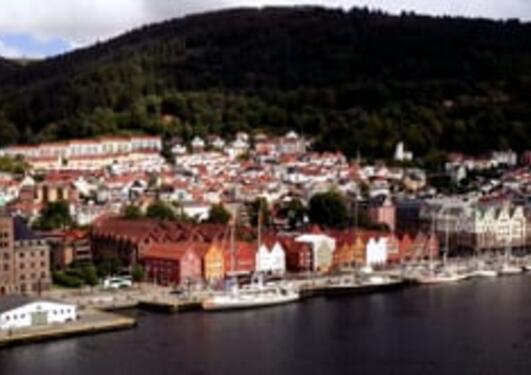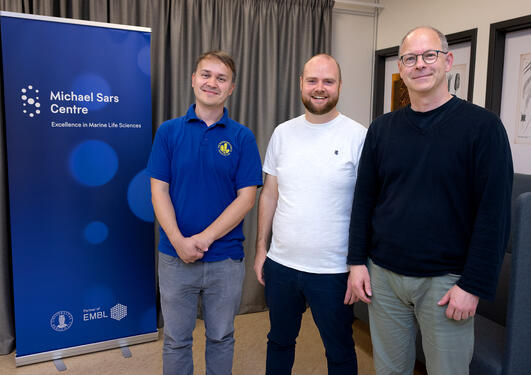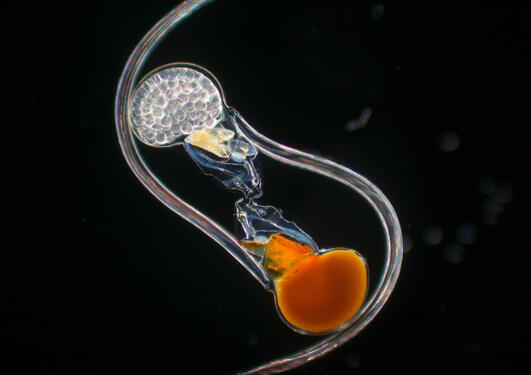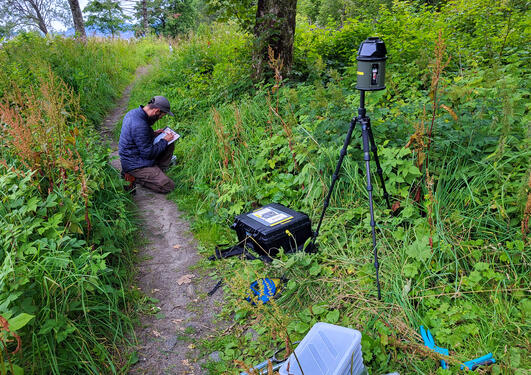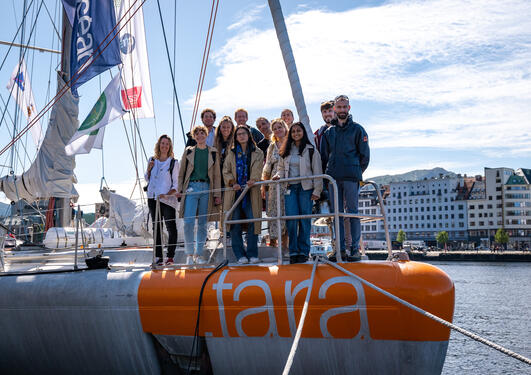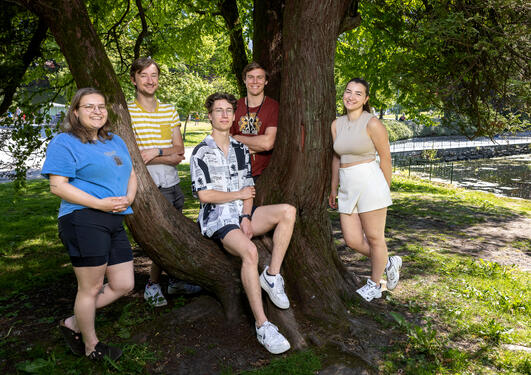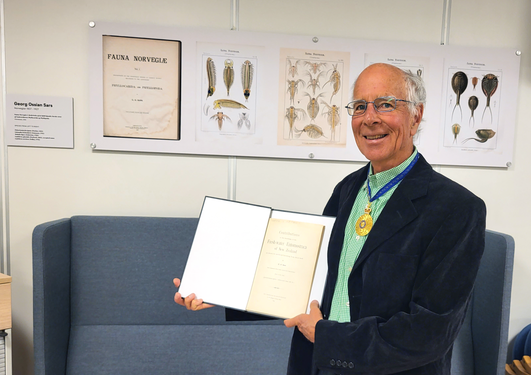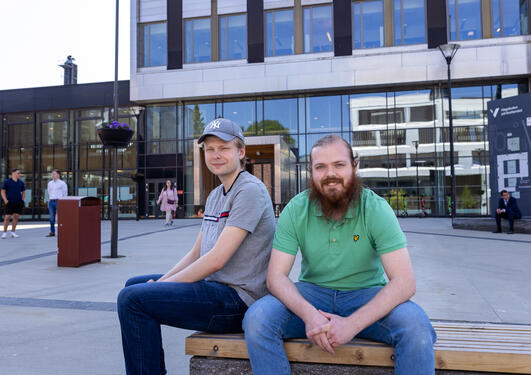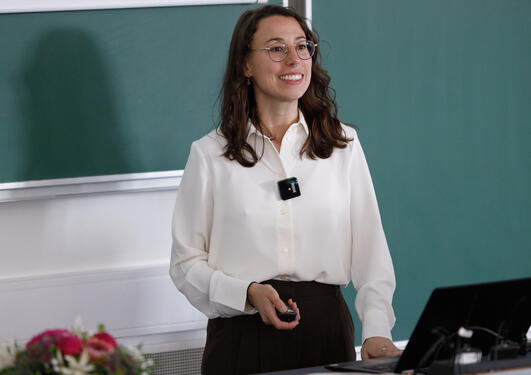News archive for Michael Sars Centre
A new paper from the Chatzigeorgiou Group unravels the enigmatic sensory strategies of planktonic larvae using Ciona intestinalis as a model organism.
A recent study provides insights into how iGluRs function and reveals an unexpected role of GABA in excitatory signaling in invertebrates.
Parasitic flatworms undergo drastic changes throughout their life cycle, including a rewiring of their nervous systems. A new paper explores the molecular mechanisms underlying this remarkable feature.
On the 15th of December 2023, PhD candidate Ronja Göhde successfully defended her thesis titled: “Secretory vesicle protein homologues in choanoflagellates”.
The Appendicularian Facility at the Michael Sars Centre at the University of Bergen is one of only four in the world. This month, guest researchers traveled from the U.S. to conduct experiments in this unique laboratory.
Students from the Nature program specializing in wilderness studies at Voss vidaregåande skule (VGS) experience a molecular biology laboratory for the first time.
We cordially invite you to join us in Bergen, Norway from Tuesday 28th until Friday 31st May 2024!
On the 28th of September 2023, PhD candidate Mowgli Dandamudi successfully defended his PhD thesis titled: “Development of chemogenetic tools from invertebrate ion channels”.
The annual science festival creates enthusiasm and understanding for research through local educational and research institutions. Held every year since 1995, it is one of Europe's largest, nationwide research festivals.
A beautiful new film by the Tara Ocean Foundation showcasing researchers from both Tara and the Michael Sars Centre sharing their knowledge and scientific practice during the EMBL TREC expedition stopover in Bergen. (French with English subtitles)
Guest researcher and former postdoctoral fellow at the Michael Sars Centre, James Gahan, will use his European Research Council (ERC) Starting Grant to establish his own research group at the University of Galway, Ireland.
Understanding the neural control of movement and how it evolved is critical to better address neurodegenerative diseases. In a recent study, researchers discovered that neuronal networks controlling movement in humans and tunicates have the same building blocks, structure, and function.
Traversing European Coastlines (TREC) is a continent-wide expedition addressing environmental challenges along the coasts of Europe. On their northernmost stop, the team was based at the Espegrend Marine Biological Station, hosted by the University of Bergen.
Members of the Michael Sars Centre had the exclusive opportunity to visit the research vessel Tara on Friday while the schooner was in Bergen for samples, supplies, and fuel. Afterwards, Tara researchers visited the Centre for a reciprocal tour of our marine facilities.
Over the past ten months, research groups at the Centre welcomed five incredibly enthusiastic and motivated bachelor students from HU University of Applied Sciences, Utrecht for their first internship experience.
Curious to learn more about Georg Ossian Sars, with whom he shares a prestigious honor, Professor Fellows enjoyed a visit of our facilities with genuine curiosity and a visible sense of wonder.
Thanks to the work of two HVL intern bachelor students, the Chatzigeorgiou lab can now enjoy a new automated system to modulate gene expression in Ciona using light.
On the 9th of June 2023, Paula Miramón-Puértolas successfully defended her PhD thesis titled "Mesenterial adult stem-like cells as a potential source of germinal and somatic lineages in a sea anemone".
Pages
- 2025
- 2024
- 2023
- 2022
- 2021
- 2020
- 2019
- 2018
- 2017
